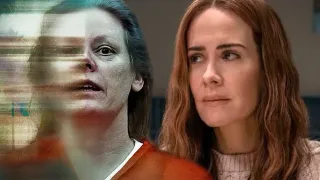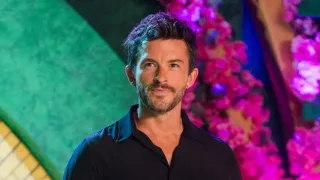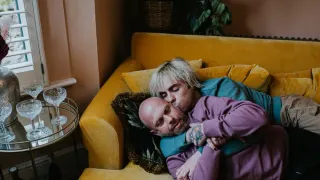
5 hours ago
Chrishell Stause Bids Farewell to ‘Selling Sunset’
READ TIME: 4 MIN.
The world of reality TV lost a little bit of sparkle this week as Chrishell Stause, one of the most recognizable faces of “Selling Sunset,” officially confirmed she’s not returning for the real estate show’s tenth season. Her exit, after nine seasons of on-camera drama and off-screen growth, is more than just TV news—it’s a cultural moment loaded with resonance for LGBTQ+ fans and anyone who’s ever had to choose their well-being over the demands of a high-profile job .
Stause, who made headlines in recent years for her joyful relationship (and eventual marriage) with nonbinary musician G Flip, has become a beacon for queer visibility on mainstream TV. Her latest move—stepping away for the sake of her mental health—feels as radical, in its own way, as her on-screen love story.
“I’ve gotten to a place where I don’t need the show financially,” Stause told Bustle. “I’m lucky to have other forms of employment, because it’s no longer good for my mental health” . For queer people especially, many of whom have spent years navigating toxic workplaces or unsupportive environments, this is more than just a celebrity soundbite. It’s a rallying cry—a reminder that we don’t owe our labor, our image, or our peace of mind to anyone.
Throughout her tenure on “Selling Sunset,” Stause brought a relatable vulnerability to the screen. Audiences watched her navigate career milestones, public heartbreak, and feuds that ranged from petty to deeply personal. Season 9, however, proved to be a tipping point. Not only did Stause face a controversial remark from Nicole Young about her late parents, she also weathered the unraveling of her close friendship with Emma Hernan amid a tangled web of romance and rivalry .
By the time of the “brutal” reunion episode, Stause had reached her limit. “In that moment, I realized I will be done here going forward. I wish everyone the best, but this isn’t the place for me. It felt a little bit like a dog pile,” she said, capturing the exhaustion that comes with being a lightning rod for conflict—especially as a high-profile queer woman in a space not always known for its warmth .
For LGBTQ+ viewers, Chrishell’s decision lands with particular force. In a culture that often expects queer folks to be endlessly resilient—to outlast, outshine, and out-perform just to claim their space—her choice to step away is a powerful assertion of boundaries. It’s a reminder that even the most glamorous careers can come at a hidden cost, and that protecting your mental health is an act of self-love, not selfishness.
“After so many hours, I felt like, ‘Sit here, get through it. You’re not a quitter, but you never have to do this again,’” Stause explained, describing the moment she realized she needed to walk away . For queer people, whose very existence is sometimes framed as an act of endurance, her words are a gentle permission slip: you can quit the things that hurt you, no matter how shiny they look from the outside.
This is especially poignant given Stause’s own journey as a queer person in the public eye. Her romance with G Flip was a watershed moment for bisexual and pansexual visibility, and her openness about her personal life helped normalize queer love stories for millions . Now, she’s modeling another kind of courage—the courage to step back, to heal, and to prioritize joy over drama.
Stause’s exit also shines a light on the unique pressures of reality TV, an industry that thrives on conflict but often overlooks the toll it takes on its stars. Her acknowledgment that the show is “no longer good for my mental health” is a rare moment of candor in a business built on manufactured tension .
While “Selling Sunset” may continue without her, there’s a sense that something fundamental is changing. Stause herself says, “The show has given me so many opportunities, and I don’t want to be bitter about it, even though I’m leaving not in the way that I would’ve loved” . It’s a sentiment that feels true for many in the LGBTQ+ community: gratitude for the spaces that shaped us, even as we outgrow them.
As we watch Chrishell chart her own path—outside of “Selling Sunset,” with new projects and a life that’s hers to define—it’s impossible not to feel both pride and solidarity. Her story is a reminder that queer people are not just survivors, but architects of their own joy. Whether you’re escaping a toxic job, healing from a “brutal” friendship, or simply learning to put your mental health first, Chrishell’s journey offers a blueprint for doing it with grace, humor, and unapologetic authenticity.
And if you’re wondering what comes next? Stause, never one to close a door without opening another, leaves us with a final, quietly defiant wish: “I don’t know when they will start filming. I hope they never tell me” . Sometimes, the bravest thing a queer icon can do is simply walk away.






